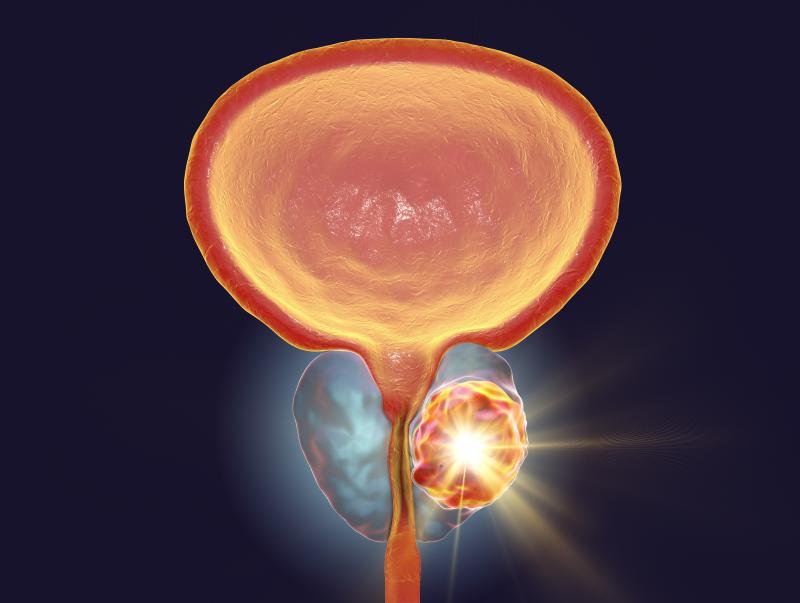
In prostate cancer patients who had undergone radical radiotherapy (RT), adjuvant docetaxel does not improve biochemical disease-free survival in the absence of prednisone, a recent study has found.
Researchers randomly assigned 376 prostate cancer patients to undergo either six cycles of adjuvant docetaxel (75 mg/m2 every 3 weeks; n=188; median age, 67 years) without continuous prednisone or surveillance (n=188; median age 67 years). The primary endpoint was increasing prostate-specific antigen (PSA) levels ≥2 ng/mL above the nadir value.
After 104 months since randomization, 58 docetaxel-treated patients and 57 surveillance controls had fulfilled the study endpoint of PSA progression ≥2.0 ng/mL above nadir. The median time to progression, death or last follow-up in the respective treatment arms was 60 and 59 months.
Kaplan-Meier analysis revealed no significant difference in the risk of progression over time between the two treatment groups (p=0.6). The 5-year biochemical progression rate estimates were 31 percent for the docetaxel group and 28 percent for the surveillance group.
Forty-three deaths occurred during the trial, 20 of which were in the docetaxel arm and 23 were in the surveillance arm. Nine and seven, respectively, were related to prostate cancer. The resulting 5-year estimated mortality rate was 10 percent for both groups.
Cox multivariate analysis further confirmed the null effect of treatment arm assignment on PSA progression (docetaxel vs surveillance: hazard ratio, 1.14, 95 percent confidence intervals, 0.79–1.64; p=0.5).
“Our result does not support the use of docetaxel after radical RT for intermediate- or high-risk prostate cancer,” said researchers.